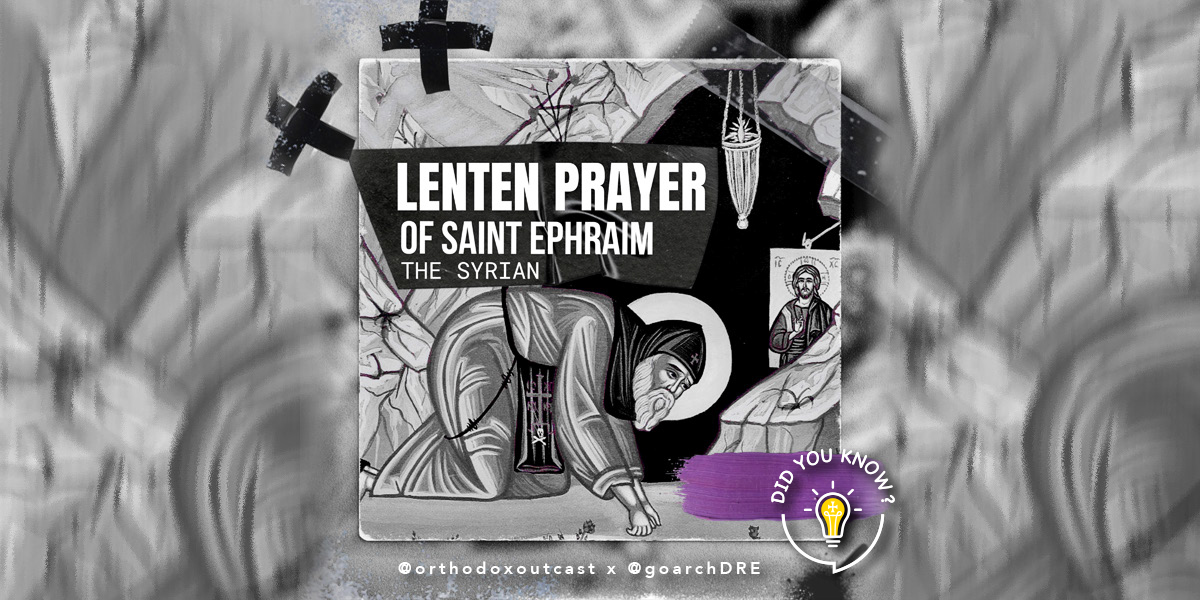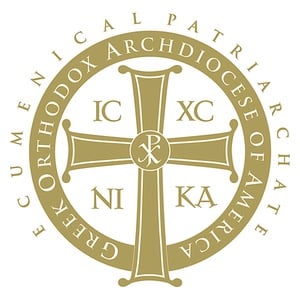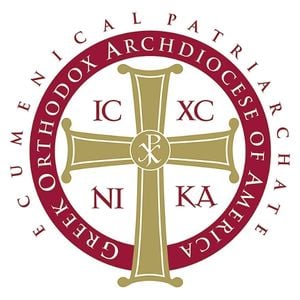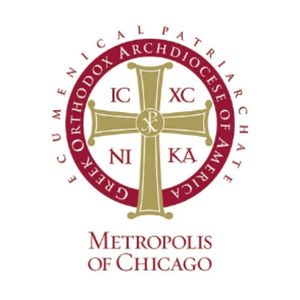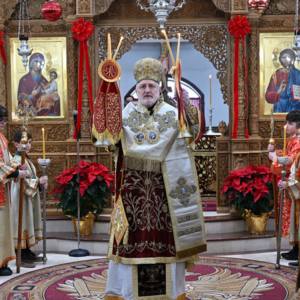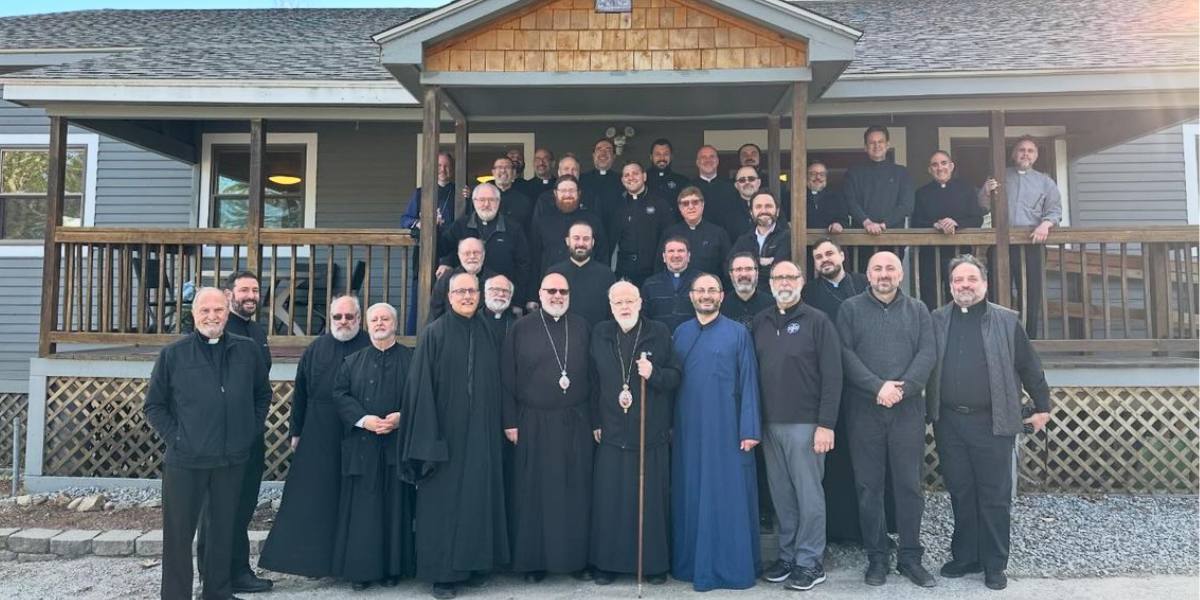DID YOU KNOW?
Department of Religious Education (DRE)
LENTEN PRAYER
March 17
Did you know the Prayer of Saint Ephraim the Syrian is also called the “Lenten Prayer”?
The Prayer of Saint Ephraim the Syrian is called the “Lenten Prayer” because it is a verbal icon and summation of the spirit of Great Lent — repentance, conversion, love of neighbor, and preparation for Pascha (Easter).
The prayer is a petition to God asking to be purified of the sins of sloth (laziness), despair (hopelessness), lust of power (selfish ambition), and idle talk (inappropriate speech). In their place, we ask for the virtues of chastity (right-mindedness), humility, patience, and love. We end by asking God to help us to see our own sins instead of judging others.
Though the prayer can be offered at all times of the year privately, it is recited liturgically during Lenten weekday services — namely in the services commonly celebrated in our parishes (such as Vespers and Great Compline).
After each petition of the prayer, we make a full prostration* — which is the making of the Sign of the Cross, falling to our knees, and bowing our heads to the floor (all in one continuous motion). Prostrations enable us to pray with our body as well as our heart and mind, all of which make up the image of Christ in man.
*prostrations optional
→ Click Lenten Prayer for downloadable, shareable, and printable 1-pager: www.goarch.org/departments/religioused/didyouknow
→ Have a burning question you want answered by Did You Know? Email the Department of Religious Education (DRE) at: [email protected] or DM them on Instagram, X or Facebook: @goarchDRE
Read DYK? in real-time by following the DRE on Instagram, X or Facebook: @goarchDRE
DID YOU KNOW? is your go-to source for concise answers to a wide range of questions about the Greek Orthodox faith. DYK? equips Gen Z and millennials with facts they can trust and easily absorb while scrolling. Clergy, religious educators, and parents can share these nuggets of knowledge with the faithful, students, those inquiring about Orthodoxy, and loved ones.

